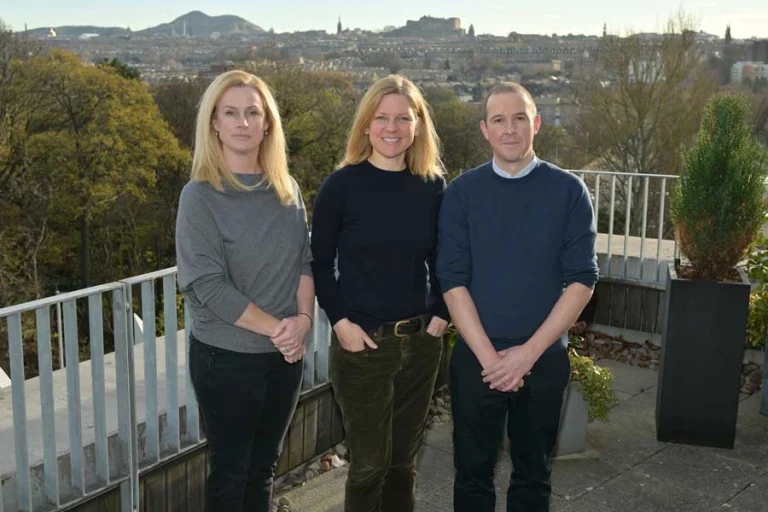17 Sept 2025
Scientists in Scotland are leading new work on an aggressive cancer that behaves almost identically across species.

From left: Professors Kelly Blacklock and Elizabeth Patton from the University of Edinburgh are working with NHS Lothian doctor Mark Stares to lead a new research project examining an aggressive cancer in both dogs and humans.
A new study, whose backers hope could herald major advances in cancer treatment for dogs and humans, is being launched today (17 September).
The Humanimal Trust, founded by well-known TV vet Noel Fitzpatrick, has provided £250,000 to fund work examining oronasal mucosal melanoma (OMM), a rare and aggressive cancer of the mouth and nose.
The project aims to develop a laboratory test of tumours’ genetic profile, which it is hoped will help vets and doctors identify appropriate treatments for their patients.
Trust chief executive Joe Bailey said: “Cancer does not discriminate between species. Approximately one in four dogs, one in three cats, and as many as one in two humans will develop cancer during their lifetime.
“Thanks to our generous supporters, we’re able to fund this vital research that will advance our understanding of cancer in both humans and animals, ensuring all species benefit equally and simultaneously.”
Although OMM can affect cats, horses and rabbits, the new study is focused on humans and dogs that are the two species in which the disease is most common.
Among dogs, average survival is less than a year and many breeds – including poodles, golden retrievers, labradors, rottweilers, Yorkshire terriers, cocker spaniels, chow-chows, Scottish terriers and dachshunds – are thought to be particularly at risk.
Meanwhile, estimates suggest that as few as 15 per cent of human patients survive for five years after diagnosis. The disease is also thought to be more common among people from ethnic minority backgrounds.
Scientists from the University of Edinburgh and NHS Lothian will lead the project, which the trust described as “a major milestone”.
Kelly Blacklock, professor of small animal soft tissue surgery at Edinburgh’s Royal (Dick) School of Veterinary Studies, said: “This research builds on work made possible by the Kennel Club Charitable Trust, whose support has been pivotal in advancing our understanding of comparative oncology.
“With the backing of Humanimal Trust, we are now in a position to take this work further, which has the potential to directly benefit both dogs and people.”